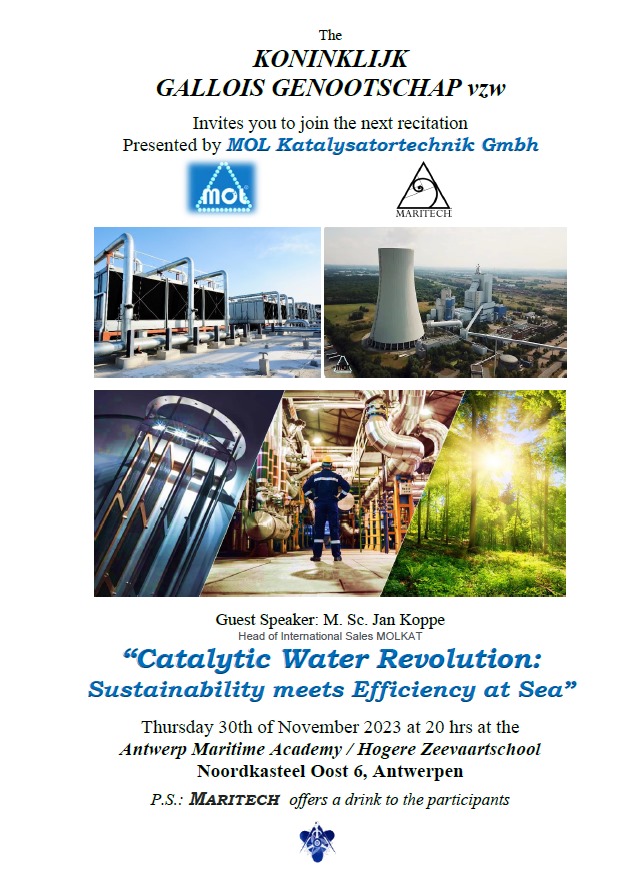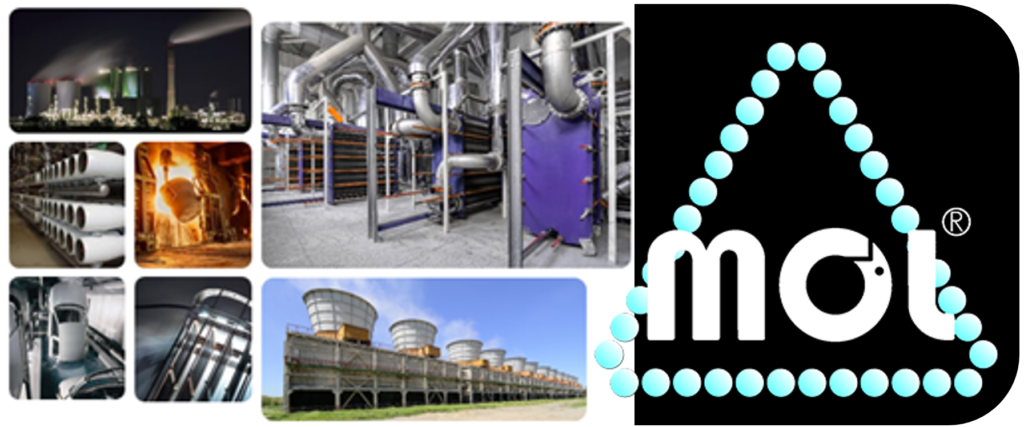
With afterword by Dr. G. Potters about the ongoing and planned research projects at the AMA

Sponsor: Maritech
Background:
The maritime industry stands at a crossroads of increasing ecological demands, energy efficiency, and social responsibility. The core challenges revolve around ensuring consistent water quality and maintaining clean surfaces, which becomes particularly imperative when considering the crucial nature of water in numerous maritime applications, from seawater cooling systems towards sanitary installations.
Objective:
The MOLKAT concept combined with the CWR-SEAS initiative primarily aims to introduce a revolutionary catalytic water treatment technology to the maritime sector, ensuring efficient and sustainable shipping. This transformative approach builds upon the MOLKAT principle, which has already proven successful in terrestrial applications, to optimize water management and bolster safety standards at sea.
Applications and Benefits: Harnessing a metal-catalyst foil, the catalytic water treatment offers a myriad of benefits tailored for the maritime sector. Notably:
• Sanitary Systems & Safe Drinking Water: Through sustainable Legionella prophylaxis, a consistent and safe drinking water supply is assured, thus combating potential outbreaks and health issues.
• Cooling Systems & Heat Exchangers: Reduced deposits mean optimized heat transfer, thereby prolonging the lifespan of heat exchangers and promoting energy efficiency.
• Filter Systems & RO-Plants: Enhanced flow rates in filter units minimize blockages, and the reduced need for water treatment chemicals further supports sustainability and cost savings.
• Ballast Water Tanks, Sea-chests, and Seawater Pipes: The technology curtails biological growth, averting biofouling, and ensures longevity of these integral components.
• Steam Boilers: The treatment enhances the longevity and efficiency of steam boilers, pivotal in maritime operations.
Conclusion:
CWR-SEAS encapsulates a groundbreaking approach to address current maritime challenges. By integrating the MOLKAT concept of sustainable water treatment, not only does it enhance the efficiency and safety of shipping, but it also lays down the foundation for sustainable development in the sector. This strategy holds the potential to instigate profound shifts in the maritime economy, seamlessly interlinking ecological, economic, and social dimensions.
We invite stakeholders, including ship owners, operators, dockyards, ports, and solution-oriented service providers, to join this discourse on steering the maritime industry towards a sustainable and efficient future.
Links: